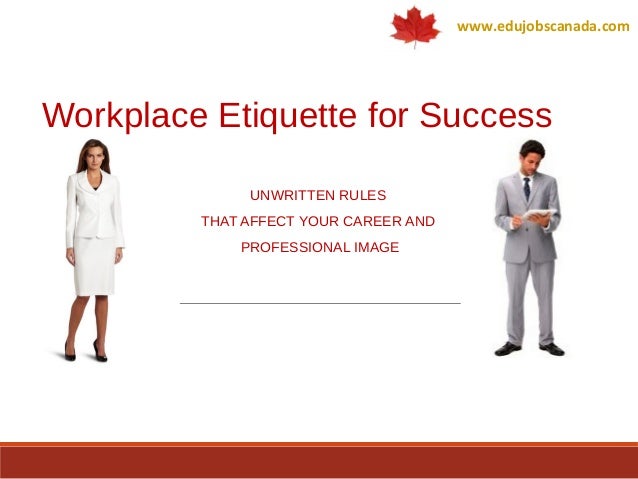- The unwritten rules of professional etiquette
- Which of these rules of etiquette exists at every workplace
Where would an employee find an employers rules of etiquette?
Generally speaking, email is an information-sharing tool, so most of the time, people prefer to read concise, to-the-point messages https://online-slots-empire.com/. There’s no need to fluff it up with unnecessary details or vague pleasantries, particularly if you’re sending a business email. You can be brief without being blunt or rude. According to email etiquette experts, it’s also helpful to include what you’re asking the reader to do—whether it’s committing to a meeting, sending a file or just listening—in the first paragraph so they know what to expect. Here are a few etiquette rules that should really be taught in schools.
Communication skills are among the most important skills you can learn. As remote work remains present and online communication grows, taking the time to build better-written communication habits will help you nurture respectful relationships, save time, and stay productive.
Email is how many businesses communicate. It’s fast, easy, and accessible. Plus, email is permanent. If you forgot what you were asked, simply find the last email thread for the answer. Email is also effective at disseminating information among team members. However, there is no way to unsend an email.
The unwritten rules of professional etiquette
Psychologist and associate professor Ryan Sharma has been mentoring students through higher education for over 14 years, teaching classes in professionalism, consultation, and clinical supervision. In his role as the director of clinical training at California Lutheran University, he helps students develop their professional identity so that they can be successful working alongside seasoned clinicians. When he is not teaching or treating anxiety in his private practice, he is either woodworking or spending time with his wife and three children.
Because it is difficult to define professionalism in an exhaustive way for every situation, some programs may not have venues for teaching it directly. Does your program give you a course in professional development? Are you referred to any books on the topic? Do you have structured mentoring in professionalism? Most of the time, your training in professionalism happens informally through your ongoing interactions with faculty who are willing to guide you through these unwritten rules. Each email reply, comment, and directive that you get from faculty are mini-lessons for the way to go about things as a professional.
Did you know that no one cares about your grades in graduate school because everyone gets As? Did you know that all students are doing extra activities to pad their CVs and resumes? Do you wonder how you are supposed to stand out among your peers and get access to special projects, training opportunities, or internship placements? Do you know th…
I care greatly about my students and their ultimate success, which is why I hold such a high bar for them while they are under my training. I have noticed that I intermittently tuck advice inside the manuals I write, the emails I send, and the lectures I give. I have decided to share that advice in this book so that you, too, can maximize your success. If I can lift you up with some of the suggestions in this book, then it elevates us all.
If you take notice of this training, the conglomeration of these experiences will begin to coalesce around the subtle expectations of professional etiquette. If you do not notice this training, you may feel lost in a sea of expectations that you do not understand. Sure, there are general principles that guide professional attitude and deportment, but how do you apply those principles when

Which of these rules of etiquette exists at every workplace
Nobody wants to be that colleague who has the messy desk or noisy working habits that get on everyone’s nerves. These in-person workplace etiquette tips will ensure you’re a pleasure to work in an office with.
At Slouch, we spend our days thinking about what makes offices work better. And while having a comfortable, ergonomic workspace is important, mastering workplace etiquette is another completely different aspect of working life you also need to consider.
While your employer may have set rules like a dress code, workplace etiquette is the unwritten rules that help make the office a respectful and productive environment. While these rules aren’t explicitly stated, they are often an unspoken requirement that ensure everyone gets along both online and in person.
Workplace etiquette encompasses a set of unwritten rules and social norms that govern behavior and interactions within a professional setting. While specific customs may vary across industries and cultures, certain principles of etiquette remain universally applicable. These principles revolve around respect, courtesy, professionalism, and effective communication.
We hope you’ve learned a thing or two that will help you get ahead at work. For office furniture that will keep you comfortable in all of your efforts to be your best work self, browse our full range of office chairs and office desks.Contact the friendly experts at if you have any questions or queries about our office furniture.
In the professional world, success often hinges not only on skills and qualifications but also on the ability to navigate social interactions effectively. Workplace etiquette, therefore, plays a crucial role in creating a positive and productive environment. From communicating respectfully to fostering a culture of inclusivity, adhering to proper etiquette can enhance professional relationships, boost morale, and contribute to overall organizational success.
